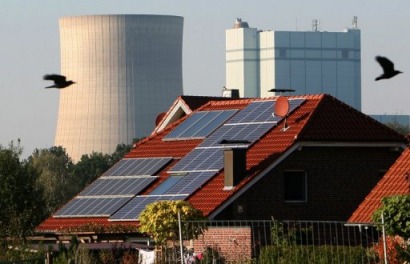
The measure endorsed by the lower house of the German parliament on Thursday is considered a significant blow to the world's biggest photovoltaic market. It cuts subsidies for rooftop installations beginning in July and for ground-based cell assemblies from September.
The vote came a month after Environment Minister Norbert Roettgen announced plans to bring forward the start of the subsidy cuts by six months to July 1.
However, the cuts are not as steep as Roettgen initially anticipated. The new law represents a compromise proposed by the German cabinet after the economy and environment ministries clashes over a proposed 25 percent cut is supports for the solar industry.
Germany, no sun-drenched locale, became a solar energy juggernaut following the adoption of its Renewable Energy Act (EEG) in 2000, which guaranteed investors above-market fees for solar power for 20 years from the point of installation.
Last year German incentives for renewables -- about half of which was for solar power -- totalled about 13 billion euros ($17.9 billion).
Germany added 7 gigawatts (GW) of capacity in a record-breaking year in 2010 to bring the total to nearly 17 GW.
But that success – representing a total output equal to 17 large power plants – raised concerns that the sector was overheated and growing an unsustainable rate.
That sentiment was disputed by the German Solar Industry Association (BSW), which said cutting the subsidies would devastate the sector and endanger 130,000 jobs.
For additional information:

